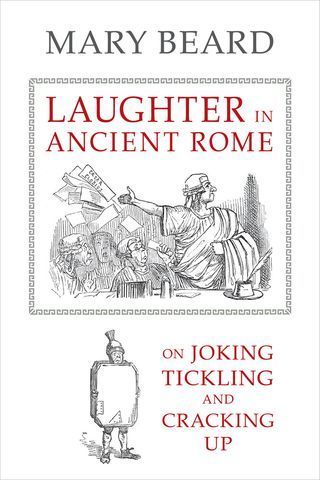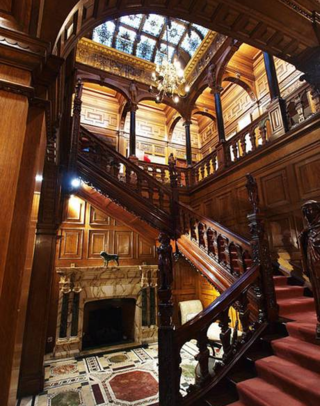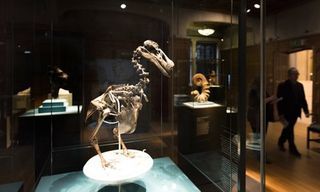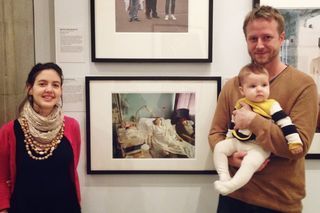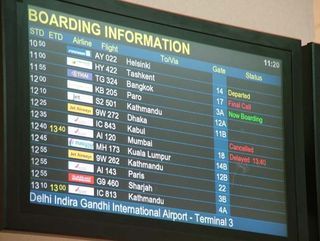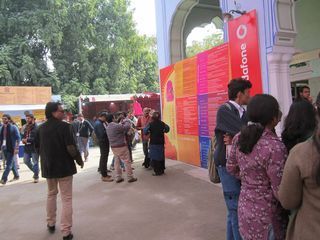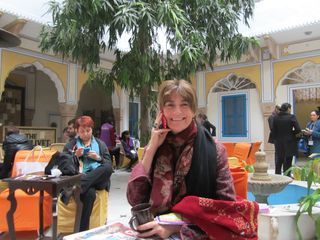Mary Beard's Blog, page 37
February 18, 2014
Plagiarism?
If any of you regular readers have still any time for the progress of my book on Roman Laughter, let me confess that I am now correcting the final proofs and putting in the cross references.
This is another stage that actually takes longer than you ever imagine. The truth is that there are still some errors. How did three transliterations of Greek first person singular present indicative verbs fail to get a long mark over the "o", as in "gelao" (cant do the longs on the blog I am afraid)? The buck stops here, I have to admit: if there's a mistake, then it's mine! And there are also a very few puzzling omissions (some missing "the"s for example -- could this be a mad computer? that's what I think . . .).
But I am more concerned with odd issues of plagiarism.
Our students tend to be preoccupied with "plagiarism", or with that even more sinister crime of "self-plagiarism". They have a terrible spectre of the crime of copying, even copying from themselves. In truth, there is very little that is willed and wicked. I dont think I have ever come across a piece of work that has chunks lifted from Wiki (though I know those who have). Most "plagiarism" in essays is the result of casual note-taking. Sir Ronald Syme's distinctive prose is copied into the student's notebook, without exact reference, and it then goes into the essay with acknowledgement. It sticks out a mile.. and I have usually found that a marginal comment along the lines of "do you really think Sir Ronald oman Revolution, p. 66> is right?" does the trick.
Anyway, when I was doing the copy-editing queries of my laughter book, I just had this sinking feeling that my own summing up of the decline of Bakhtin's "carnival culture" in the late middle ages ("it became light entertainment not liberation") didnt quite feel like me. I searched through my notes, and through google, and everything else, and I couldn't find the source. I did find the words "light", "entertainment" and "liberation" in discussions of Bakhtin, but no more and not my formulation.
Two months later I've looked at the same phrase, and it still doesn't sound exactly like me. I have looked again in my notes, and in Bakhtin and in books about Bahktin; and I still find nothing exactly like that. But I still think I may have got it from somewhere.
So if you coined the phrase that the end of carnival culture signalled "light entertainment not liberation" -- I am sorry, I tried to find the source, and I apologise. If I had been a student, I would probably have been given a red card by now. But, happy to acknowledge if it gets to another edition
February 15, 2014
The public voice of women
I am afraid that I have been a bit preoccupied this week. Many you will know that I was giving a lecture for the LRB last night at the British Museum on "The Public Voice of Women". It was an attempt to think about modern issues of trolling, the Tory front bench (lack of women thereon) and why so many women claim to find they have an "awkward relationship" to the domain of public speech -- while putting it in the context of the western tradition of silencing women, and defining the males of the species as the speakers ("vir bonus dicendi peritus", as the old saying went -- binding manhood, virtue and eloquence into a neat triangle).
OK, you might say, you are "pro" at this game -- why should one lecture be SUCH a big deal? The answer's simple, a few weeks ago BBC4 asked if they could record it.
I can't tell you what a difference that makes! It is bad enough giving a not very good lecture to 300 people -- they look a bit disappointed, you feel a bit embarrassed that you didnt hit the spot, there will be a few critical tweets. But basically you move on, no-one really remembers, it doesnt actually count against you in the long term, because it's off in the ether. The idea of doing a bad lecture that can not only watched by thousands and thousands (until they decide to switch channels) but doesn't actually disappear into the ether in the same way as a mere lecture, is a bit alarming -- or at least much higher stakes.
So I spent days and days on this one (when I should really have been correcting the final proofs of my laughter book -- aaagh), finding the images, trying to get the balance right between Classics and politics and personal comment, having enough funny and enough serious, etc. Literally days...
Whether it worked, you will be able to decide for yourselves, as it will be published in the LRB and on their on-line sit, and it will then be on the tv (and there are some preview quotes here).
But all in all I had good day: hair cut in the afternoon (yes I DO have my hair cut -- at Gary Ingham, if you want to know!); met friends after the lecture -- inc Megan Beech (first time face to face) and a wonderful posse of ex-students. And finally a long dinner.
It was also an interesting day. Part of my talk reflected on the ways that women are often urged to ape male rhetorical techniques to get their points across. The classic example is of course Margaret Thatcher, who was specifically trained to speak lower to gove her high pitch voice more authority. I wanted to question the idea that women had to pretend to be men in order to find a voice. Wasnt that just making them more outsiders, turning them into actors not orators? Shouldn't we think instead about how we might learn to find women's (natural) voices authoritative?
Anyway, throughout the day, one point that came up time and again from the women I met who had been on "communication courses" was that they had all been urged to lower their voices and speak more like blokes. And indeed most who talked to me about it felt that it was in the long term counter productive.
Now who, I wonder, gives these courses?
(PS. Full text of the talk now online here)
February 9, 2014
Me and Kate: the record straight
At the end of the week I am giving a lecture at the British Museum organised by our friendly rival, the LRB It's on "The Public Voice of Women", and I am afraid that it is sold out -- but all being well it will be filmed and broadcast on BBC4 in due course (which of course makes the preparation all the more scary.
Anyway in the run up to this (and supporting the home team, as it were) I did a big interview on the general subject for Saturday's Times. It's behind the paywall -- but those of you who go there can read it here (don't shoot the messenger!). If you're booked to come to the lecture, dont worry: it's not going to be a repeat of this -- I've been very careful about that.
I say "big interview". What I mean is that I talked to two journalists (Rachel Sylvester and Alice Thomson) for about an hour and a half, and they condensed it into a double page spread (dont know how many words that is, but with a picture etc, it isn't all that much). The conversation was a pretty wide one -- ranging from the prominence (or not) of women in politics, at all levels (important not to assume that "politics" is all about Westminster, it's about local councils etc etc too); through changes in Cambridge over my lifetime; what role models are available for kids (I wanted to stress that "impossible" fashion was nothing new, women -- and sometimes, but less often, men -- have always been urged to force themselves into impossible and uncomfortable shapes); tips for women who want to make their voice heard (dont have all that many, to be honest); internet abuse; to current reforms in education.
I thought they did a pretty good job, to be honest (thank you, Rachel and Alice).
Now, in the course of the interview we did touch on the Duchess of Cambridge and Hilary Mantel, for various reasons. I thought for example that the Mantel fuss last year was quite a good example of people telling a woman to shut up, without ever knowing what she had said. And we had a few words on how the different members of the royal family seem to offer very different ways of "being female and public". We talked about the Queen (and the image of the elderly more generally), Princess Anne (partly in the context of changing images), and Kate as the immaculate, admirable, maternal icon. There was some chat too about how people like Kate get imprisoned by their image (gilded prison though it is). Nigella Lawson would be another. Think of the cost for her of saying, "Stuff it, I'm fed up with this Domestic Goddess business".
The overall message was that (in general, with all the obvious exceptions) women play a higher price than men if they want to make their voice heard.
So far, so good.
The Times headline (wo)men, predictably enough I guess, picked out the bit about Kate -- to cast Beard, I'm afraid, as if she were a kind of wannabee Mantel. And that's what got featured in the little news item that they ran on the back of the interview.
All the same most people commenting online didn't fall for it, though a few did -- and in those cases I decided to reply giving a fuller story (this is always a hard call, but I reckon that if someone simply gets you wrong, it can be very important to say so -- else we just let "below the line" become a completely free for all, abusive fantasy).
So when someone called (rather alarmingly) PlatoSays started off:
"Women bitching about other women leaves me cold TBH",
I said:
"I really dont think this was "bitching". I hoped it was pretty clear from the interview that (despite the catchy headline) this was part of wider reflections of women's public voice and image. See no point in bitching." etc. etc.
All the same, it was a largely pretty polite stuff, even if (under the news item) Mr Ric Williams did seem to confuse me with Mary Berry: "She might be a Professor but no one outside the narrow confines of academia would be interested in her opinions if it wasn't for The Great British Bake Off."
But then -- wait for it -- it was picked up by the Mail and the Mirror. Their takes on the story were predictably different. The Mirror (bless them) ran with the headline "When I saw Kate Middleton's grey hairs I thought they were great" (it's their picture above) The Mail did include the grey hair bit in the head line, but started off "Duchess of Cambridge is prisoner of her maternal doll-like image.." To be fair, the rest of the article wasnt all that bad actually:
"Cambridge University classicist and TV presenter Mary Beard said that the Duchess of Cambridge has been reconstructed as an object of admiration following her 2011 marriage into the Royal family.
This has seen the future Queen transformed from a Berkshire woman into a beautiful 'vessel', she said."
Well I never actually said anything about Berkshire (didnt even know that is where she came from)! But the piece did go on to to raise the question that I raised: namely, if she is a construction WHO constructed her? (It's easy enough to talk about the construction of an image in the passive... but try it in the active?)
But around this fairly decent prose, there were of course the photos doing their own job: one of me looking like the back end of a bus, and Hilary Mantel not much better, next to a radiant Kate!
The comments below the line, almost 300 of them, were more divided than I expected. More than a half on my reckoning really laid into royalty, as lazy (grey haired) freeloaders. The others laid into me (with the occasional sideswipe at Mantel):
"Leftist feminists should not comment on the looks of other women but should rather look themselves in the mirror.", "Who is Mary Beard and who cares what she thinks ?", "Mary Beard has very little grip on the real world, as reflected in many of her comments. She is cocooned in her safe world of academia", "These two writers should stick to their typewriters. (They both have a typewriter vintage look.)", "Mary Beard is to be pitied if she truly believes that she is making any contribution by being unkind for no reason other than envy", "Cheap publicity for Beard (who does what exactly?)", "Mary Beard is a leftie professor who just talks nonsense like all other lefties", "How I wish that Mary Beard would just shut-up!"
And so on. To be fair none of it was really nastily offensive (on the internet troll scale of offensive). What was really striking, though, was the almost total lack of middle ground, or uncertainty, and the almost complete faith that the Mail article represented my views, fully and exactly.
This was a bigger nut to crack. So I decided to give it a day and respond to the most aggressive, and explain that this was a partial account of a bigger 90 minute interview, which had touched on Kate and other members of the royal family in the context of bigger issues about women's public roles, available on the Times website. Etc.
(So far the Mail vetting team havent actually published many of these responses.. but I'm hopeful).
But, for me, one day of giving patient responses is enough. After all, I now have to get the lecture actually written.
The funny thing is that the University's head of communications reminded me last week that the LRB lecture was what got Hilary Mantel into all that trouble. I was insouciant -- so he'll be laughing. But let me promise (him and you): Kate doesnt even get a walk on part in the lecture, and there will be rather more about Homer!
February 5, 2014
Come to visit the dodo
I don't tend to advertise my university, in a knee-jerk way. I think I tell it as (I think) it is: support the place when it deserves it (like on all the unsung efforts they make on access and outreach) and speak out a bit when it takes some pretty wonderful statues out of the library (still think it;s a crime). So you can believe me when I say that there are some truly amazing things on display for the next few months at Two Temple Place, in an exhibition of highlights -- Discoveries -- from various university museums in Cambridge. It's a brilliant display overall.
It is also a great location, as you can see at the top of this post (and worth going for the setting alone). Originally the home of William Waldorf Astor, and built in the late nineteenth century, it's an amazing Victorian extravaganza (a lavish house-cum-strongbox -- there are walk-in rooms that were actually safes). It now includes temporary exhibition space,
And some of the best university treasures of Cambridge are here.
That includes some of our plaster casts of ancient sculpture from the Museum of Classical Archaeology (they probably look even more stunning than they deserve under the spotlights). But there are loads more things to wonder at. I was rather taken by the reconstructed dodo skeleton (seen here in even more splendour than the one in the Natural History Museum) and by the "tinamou" egg collected by Darwin on the Beagle, who actually packed it so tight it cracked (Juppiter nodding), and it was only recently rediscovered by a volunteer in the zoology museum (one of those great museum re-discoveries).
But it is not only science and antiquities. There is a quiet corner where you can come and sit as if you were in Kettle's Yard in Cambridge. And what could be nicer than that?
Anyway it's completely free (as are the museums in Cambridge), and there is a great event and educational programme to match.
So come and enjoy! I really did.
February 1, 2014
Self-regard
I confess, I took 30 minutes off to have a look at myself in the Taylor-Wessing photo portrait show at the National Portrait Gallery last week. It was total self indulgence (or self-flagellation, depending on how you look at it).
The fact is that a year or so ago (after AA Gill had said I looked like the back end of a bus, and should be kept off tv, apart from "the undateables"), the excellent photographer Adrian Peacock asked if he could come and take some photos of me. I was inevitably torn. OK a nice guy and a great photographer, but wasn't this just another way of self promoting/ self humiliating? So I said rather sternly. Well, OK, yes -- but you've got just 30 minutes.
I didnt think much more about it.We had a fun time doing the pics... but, to be honest, it wasn't until he told me that the pic was in the shortlist for the Taylor Wessing prize that I thought much more about it. (If you want to explore the family, his partner's novel is about bees.)
Anyway, it was after the staff post-Christmas lunch at the TLS that I nerved myself to go and take a peek at the NPG. I thought there were some brilliant pics there -- but that I (thanks to Adrian) could hold my head up high. We weren't winners (more my fault than his I suspect). but it was great to have a great pic of an ordinary 50 something woman there (ie me).
In fact I was rather taken by Sipke Visser's pic (above) of his partner, her mum and their baby -- all asleep  after just giving birth. And the winning pic of the female jockey, Katie Walsh, was great too.
after just giving birth. And the winning pic of the female jockey, Katie Walsh, was great too.
I confess that I half hung around my pic to try to listen in to what people were saying. But rather failed! I couldn't quite do the nonchalant overhearing bit.
I was actually feeling quite relieved that no one had matched me up with the pic That's until I half attached myself to a guided tour, just to hear what the general spiel was. As I was listening, a nice man said "have you come to have a look at yourself?". "Oh f***" I said, or words to that effect -- and we got into a bit of a friendly conversation.
At which point the guide (and I dont blame her at all) said to me "Are you part of this group?". And I scuttled off.
Better not to know, etc etc!
January 28, 2014
The milkie
One gloomy parlour game is to take a bet on what much loved service will no longer exist in ten or twenty years. We might have rightly predicted the demise of the telegram a few decades ago; or the second postal delivery; or even (to bring it more up to date) the local video rental shop. To be honest even the first postal delivery isn't what it was (at least once a week we get someone else's mail... so where is ours going?)
One common answer to the "on the way out" question would now finger the more or less daily milk delivery (ours isn't quite daily, but near enough). How many other countries in the world (and yes I'm expecting an answer here, please) put a bottle on you doorstep most days a week?
This is where I move to PR mode.
We used to get a delivery from Dairy Crest (now rebranded as Milk n More). For some reason I cannot recall we moved to a local independent, Plumb's Dairy. And we now have a new milkperson by the name of Alison.
The truth is that we have never actually met Alison (as I suspect she zooms by at around 5.00 am). But she leaves regular notes, as well as order form for logs, kindling etc etc. And we feel we know her quite well already.
Her last note said she was hoiping to be nominated for the milkman of the year award. So if any of you guys around Cambridge also have Alison please vote for her.
I used to think I had bonded with my postie. But now I havent got the foggiest clue who he or she is; and she or he seems to have quite a problem getting the right mail in the right box. But I have bonded with the invisible Alison, who leaves nice notes.. and delivers the milk to the right doorstep; and has a good line in kindlimg and logs.
Long may she last.
January 23, 2014
Jaipur Journey?
I am well aware that hard luck stories of jet-set travel do not go down too well on this blog. If you must waste the planets resources by flying to India for three days, then don't complain when it doesn't quite work out. Basically, it's 'the if God had wanted us to fly, he'd have given us wings' argument.
Some of you, I am sure, will read the following narrative as Beard's come-uppance. But I think you might also try it as a sad tale of the individual against the un-listening corporate bureaucracy. And there's a topical tale of Twitter abuse, sadly, to end the tale.
You'll have seen in the last post what an extraordinary occasion the Jaipur Literary Festival was. Equally extraordinary, in a less up-lifting way, was getting out of the place.
The deal was I was leaving yesterday morning from Jaipur, flying to Delhi, then -- with a 3 hours gap -- flying on to London. When I got up in Jaipur and checked the websites, it was clear that the flight to Delhi was already estimating at 2 hours late. That was perhaps enough to make the connecion, but would need luck I reckoned.
And that was the beginning of a long day in which luck never quite materialised.
Except that is for the pleasure my fellow unlucky travellers. At the airport, hoping to do exactly the same journey, were five other speakers from the Festival -- a motley crew or distinguished line up (depending on how you look at it) of historians, critics and writers, some old friends and interlocutors, some new found allies, with a range of expertise from Stalingrad to the Mani. It could have been fun, and in a way it was.
We all had good reasons for getting back to the UK by Weds evening, and all could see that a 2 hour delay could be the writing on the wall for that -- without some active intervention. So long as Air India knew the problem, so long as they managed to whisk us through the airport, we would just make.
So we contacted the festival organisers, who said they would get the message to Air India; we talked to the Air India desk at Jaipur; and we talked to the crew on the plane (who consulted the captain). They all said that we would indeed be whisked through the airport and to the waiting onward plane. It all seemed relatively in hand, and we felt a bit of safety in numbers.
But dream on. I should have known that when we were not hustled off the plane from Jaipur quickly, that nothing really had been done. And so it turned out. No-one was waiting for us at all. We did actually make the transfer desk when it was still saying 'final call'. But the decidedly unhelpful official refused to let us go on to the plane . . . it was all ready to go. We insisted that he rang the plane, which he eventually did. There was a moent of relenting when we were moved to passport control (the departure boards still said 'final call'). Then someone changed their minds, and back we were summoned. The plane did not actually leave its stand for another 15 minutes.
Two gripes. 1) we didn't just turn up late to the airport, we were on a damn late-running connecting flight of Air India.. and there was as it turned out plenty of time to get us on 2) .. and this is what really griped .. not a single member of staff of Air India did what they said they would or had ('we will ring through to Delhi', 'we have arranged for you to be met' etc; not bloody likely).
And so it went on. They put us in a hotel some 40 minutes away from the airport (airport hotel supposedly full.. really? this one cheaper I suspect) and promised they would phone to tell us whether or not they could get us on a BA flight in the early hours, some time before the next Air India flight. Did they? Of course not. By the time we had managed to get through to them, and found they had done next to nothing (to put it politely), it was past midnight. And two hours sleep was left before getting up to go again for the Air India plane.
There was throughout all this, I confess, some good 'stuck in the lift' style fun, and some bonding in adversity -- and a good deal of alcohol consumption by some of us. And I accept that we weren't dumped on the streets to fend for ourselves; there are a lot of worse disasters in life, I know. But the bad luck went on till we reached the airport. On the way there, one of the cars we were in blew a tyre (this was at 4.00 am) and we had to wait, stck at a traffic lights, for a replacement. Then I got a relatively low grade Twitter threat from someone who had heard me talk on Crimewatch about internet abuse ('your plane is gonna be blown up" it said) -- silly, stupid, but that's all you need coming through your iphone to tip you over the edge, just as you are finally going to get on the plane.
January 20, 2014
Jaipur Literature Festival
I am on a quick break -- doing a gig or two (and having a great time) at the Jaipur Literature Festival. The whole phenomenon of the "literary festival" is a strangely comforting development of modern culture. I often think how much my Mum and Dad would have been keen participants, if only they (the parents, that is) hadn't died just a bit too soon for such events to have taken off--- at least, within spitting distance of Shrewsbury.
Jaipur is a bit different from the UK versions, though. That's probably because the festival here is entirely free of charge. And it is absolutely packed (the picture above doesn't quite capture the crowds). And the "no entrance fee" makes a difference to the demographic too. There are many more young people here than in the average British Lit Fest; much as I love them very dearly, they are -- to be honest -- a bit "my aged". The Jaipur Festival attracts loads of the under 30s. Some are coming 'on the pick-up' or for some cheap beer, no doubt, but a hell of a lot are (also) obviously going to the talks -- because they are all packed.
To put that another way, it's quite a different experience from speaking at a Brit Lit Fest. That's to say, speaking to people who have paid in advance to come and hear you, is different from talking to people who have turned up because they just MIGHT be interested. Both are fun, but they are very different.
Anyway the entertaiments at Jaipur are great. That's Olivia Dalrymple in the Writers' Lounge above. And  the Glenlivet Bar in the same on the right ( think that might be Homi Bhabha in the foreground, but not quite so expert in the literary firmament to be sure). And I am in a hotel to die for (the roof of my "tent" underneath). Mind you I am working hard enough for it (third gig tomorrow, interviewing Jack Turner about his book on spices).
the Glenlivet Bar in the same on the right ( think that might be Homi Bhabha in the foreground, but not quite so expert in the literary firmament to be sure). And I am in a hotel to die for (the roof of my "tent" underneath). Mind you I am working hard enough for it (third gig tomorrow, interviewing Jack Turner about his book on spices).
I'd reckon for any of the young, anywhere in the world -- if they could find a cheap flight -- that the festival would be a great way of seeing some of the western intellectual greats (not meaning me.. but they are here aplenty) as well as Indian stars, and those crossing continents. You can find this year's programme here.
Once you get here, it really is free.
January 18, 2014
My new book: the opening rounds
You will be pleased (or maybe not) to know that I have started on the new book; I should have been doing it since October, but in the end the final stages of Laughter and a new Part II course meant that nothing much got started till January 1.
This one is a rather hubristic enterprise, as it is a history of ancient Rome from "Romulus" to the third century CE/AD (working title is SPQR). I never imagined that I would ever take on such as project. But if you can't do it when you're 59, when can you? (Earlier one wouldnt know enough, later one might be on the downward spiral.)
Anyway, I am now on the part of the process that is (more or less) unadulerated fun.
That is to say, I'm reading some of those bits of ancient and modern literature that I have always meant to read but never quite did -- or more often book I have used, raided and dipped into, but never read from cover to cover. It's almost always such an eye-opener.
Last week I read (what is left of) Velleius Paterculus' History. Sure, I had raided this before many a time. For example, this is where the great anecdote about Mummius the destroyer of Corinth -- and well known philistine -- comes from. When he was having the priceless antiques from the city loaded onto boats, he told the hauliers that if they dropped any precious object they would have to replace it with a new one (an inappropriate application of the new for old principle -- which doesnt really apply to antiques). Even reading this in its wider context made it clear that Velleius wasn't quite so down on Mummius as most people who quote the story assume. In a sense, for Velleius, he was showing a properly unfussy attitude to "luxury".
But more generally, I had always fallen into the trap of thinking that Velleius was a, not very smart, lackey of the emperor Tiberius, and so not on the top of my list of reading. Wrong in two ways: if he were a not very smart lackey of a Roman emperor writing a history, he would be well worth reading for that very reason; but actually reading him from start to finish, you find he isn't that dim at all (plently of really interesting stuff about the relationship between Greece and Rome, and the thread about Italy and the relationship between Rome and the rest of the pensinsula is -- and many have long realised -- a real corker).
But some modern books have been getting the same treatment: a full, cover to cover read, when they have previously only been consulted for specific things. The winner this week on that score has been Emma Dench's Romulus' Asylum, which looks at some of the many ways Roman "identity" was defined and experienced. The title references the foundation of Rome when Romulus is supposed to have attracted citizens to his proto Rome by opening an asylum, and inviting in runaways, criminals etc (or on other versions "political refugees").
As I started from the beginning, it warmed my heart straightaway because Dench turns out to dislike as much as I do the term Romanitas, which has become something of a fashionable term for referring to Roman cultural identity... though not attested to be used till Tertullian, so far as I know, and really given its biggest boost by Mussolini. But it was also great in discussing the ambivalences of Roman citizenship, its changing shape and its links with all kind of other defining cultural aspects, like dress, appearance and language.
I wish I had read it properly before -- paperback it please OUP!
It did, however, lead to some needless expediture. After finishing it, I thought I really MUST read Sherwin-White's Roman Citizenship (2nd edition, 1973 -- though the link seems to claim the 2nd ed was 1992; not really?), It is the rather dry compendium of the basic data of citizenly privilege,but it would get into my head exactly who had Ius Connubii, what the history of the "Latin right" was. So I found a cheap copy on Abebooks and guardedly looked forward (?) to reading it.
Then, of course, I went into my college office... and what was there on the shelf? Large as life, a copy of the 2nd edition of Sherwin White. I've obviously been here before . . . the truth is that the book didnt actually look much read though.
January 14, 2014
Some good books on ancient history
This is a blog prompted by (a very useful) request. I often get asked what I would recomend for a (more or less) beginner in Greek and Roman history -- so what do I say? There are some obvious choices. I reckon most volumes in the Cambridge Companion to... are pretty good, as well as the relevant volumes of the OUP "Very Short Introduction" series (whoops, including my own). Then, there are some obvious recent things, from Tom Holland through Peter Stothard to Charlotte Higgins.
But what if we go back a bit (though no further than the mid-twentith century), to those real gems some people have likely forgetten -- written by specialist with a wider audience in mind:
1) I'd start with M. I. Finley's World of Odysseus, written on the cusp of the decipherment of the ancient Minoan/Mycenaean script, Linear B, in the 1950s. Bits are a little out of date, but it is a wobderfully readable account, by a first-rate historan, of the history written into thre Homeric epics.
next .. from Rome
2) P.A. Brunt's, Social Conflicts in the Roman Republic, which despite the title is actually one of the best introductions to the general history of the Repubic that there is; still going strong after 50 years.
3) K. Hopkins, Conquerors and Slaves, a radical book on Roman history, for those who were not classiciss by training. Aimed at modern historians and sociologists. its first chapter is still the best account of the end of the Republic that there is.
4) P. Cartledge, The Greeks: a portrait of self and others. In my view this is the best book Cartledge has ever written. It looks shrewdly at the dualities of Greek culture: slaves/free; Greek/barbarian etc.
5) G Woolf, Et tu Brute. Declare an interest here, this came out in a series I edited, but I still think it is a great account of the murder of Caesar and why it was so crucial in world history.
6) J. Davidson, Courtesans and Fishcakes. A brilliant way into classical Athenian culture through diet and sex.
(And if you say that there are no women authors there, NB there are in the series mentioned at the start... Helen Morales, Harriet Flower etc)
You will no doubt have more suggestions. I have left out E. R. Dodds's The Greeks and the Irrational -- in many ways my favourite, but a tough nut for an absolute beginner.
Mary Beard's Blog
- Mary Beard's profile
- 4110 followers


